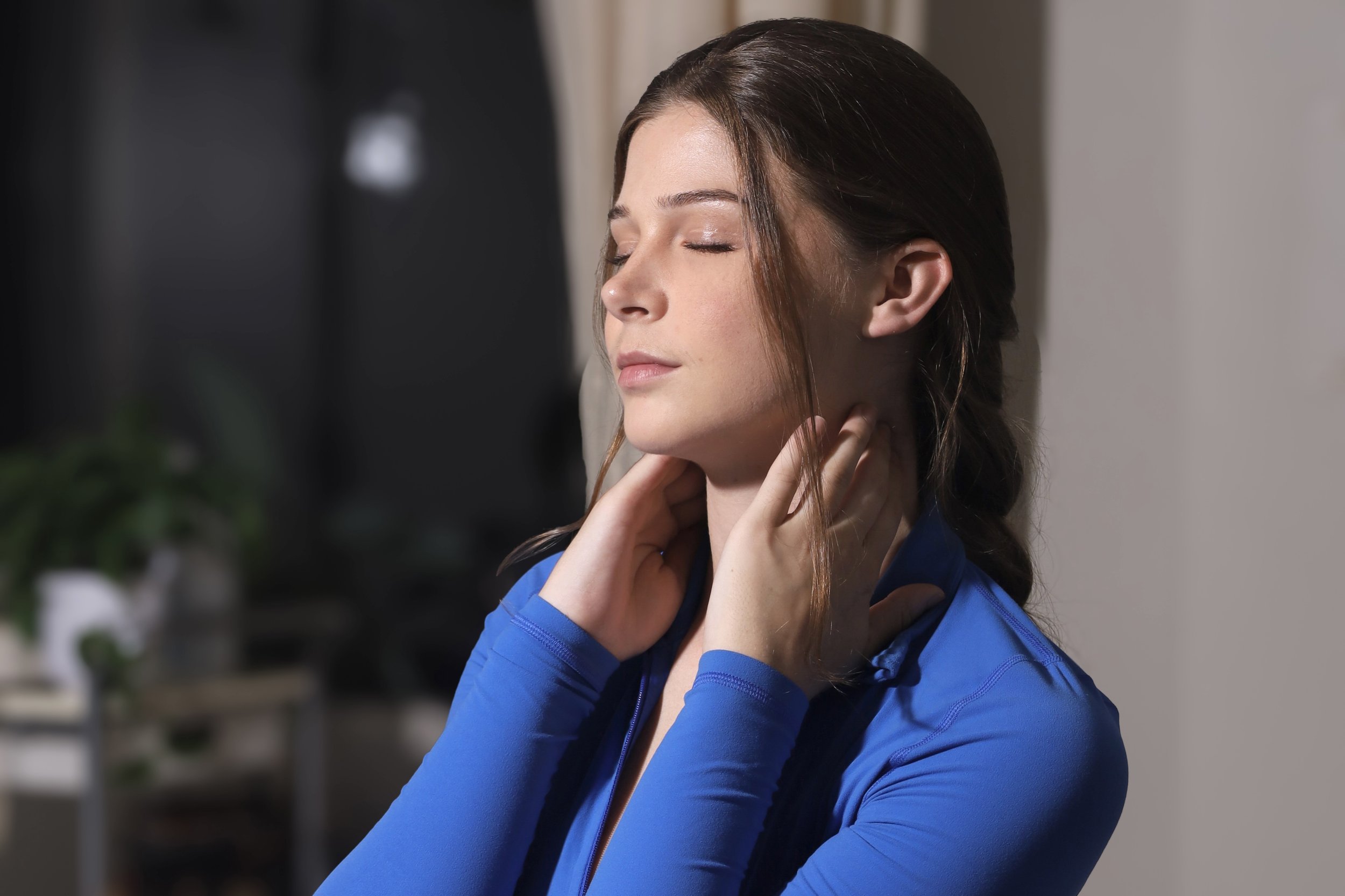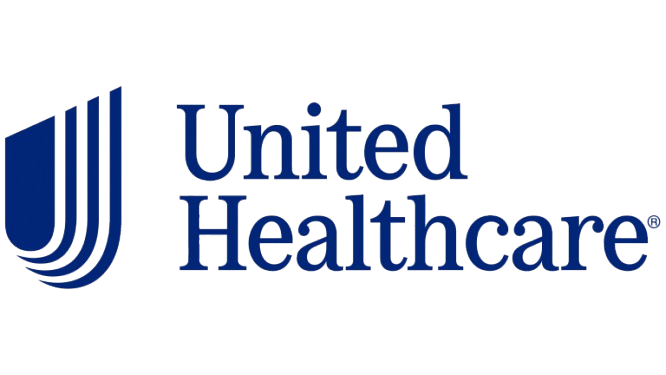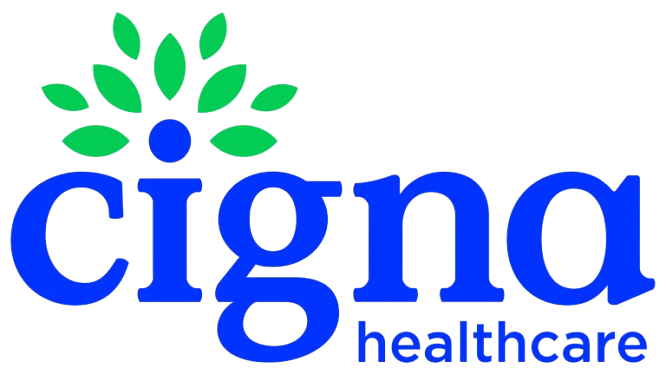
Stop the Click!
The PT Guide to Ending Your Jaw Pain
Unlock Your Smile: The Posture-TMJ Connection
Imagine gliding through a power lunch or networking event with effortless confidence, free from that nagging jaw ache or tension headache. TMJ (temporomandibular joint) pain can feel like an unwelcome intruder, disrupting your stride during long days at the desk or evenings out. This common yet treatable condition, where the jaw's hinge joint becomes inflamed or misaligned, often stems from subtle daily habits like forward head posture from scrolling or clenching under stress. Women are affected twice as often due to hormonal and biomechanical factors, but the empowering news? Physical therapy centered on posture correction offers a transformative, non-invasive path to relief, restoring comfort and poise without surgery or endless meds.
Decoding TMJ Dysfunction: Symptoms That Steal Your Spark
TMJ dysfunction sneaks up with telltale signs: jaw tenderness that flares when chewing, facial aches radiating to the ears or temples, persistent headaches, clicking or locking when opening wide, and even dizziness from muscle strain. These symptoms intensify with stress or poor ergonomics, turning simple joys like savoring a latte or laughing with friends into ordeals. According to the National Institute of Dental and Craniofacial Research, up to 12% of adults experience TMJ disorders. Early recognition prevents escalation, as untreated tension can lead to chronic issues affecting sleep, mood, and productivity. If ignored, it may contribute to secondary problems like ear infections or disrupted bite alignment, compounding discomfort over time.
The Posture-Jaw Link: Why Your Slouch Is the Culprit
Poor posture isn't just unflattering—it's a TMJ saboteur. Forward head position, common from hunching over laptops or phones, shifts up to 60 pounds of pressure on the neck for every inch forward, straining jaw muscles and ligaments in a vicious cycle. This misalignment compresses nerves and inflames the joint, amplifying pain. A study in the Journal of Oral Rehabilitation demonstrated that correcting forward head posture significantly reduced TMJ symptoms and improved jaw function in patients. Slumped shoulders exacerbate it by pulling the head forward, creating a kinetic chain reaction from spine to jaw—making posture the unsung hero (or villain) in your comfort story. Research from the Journal of Physical Therapy Science further links cervical posture to TMJ pain, showing improvements with targeted neck exercises.
Physical Therapy's Posture-Powered Toolkit for TMJ Relief
Physical therapy shines by targeting the root: realigning your body for lasting freedom. It begins with a comprehensive assessment of posture, gait, and jaw mechanics to craft a bespoke plan. Core strategies include:
Manual Therapy Magic:
Soft tissue mobilization to unwind tight jaw elevators and pterygoids.
Joint mobilizations for smoother TMJ gliding.
Postural Precision Exercises:
Chin tucks (10 reps, 5-second holds) to strengthen deep neck flexors.
Scapular squeezes and wall angels for upper back opening.
Theraband rows to balance shoulder girdle.
Breathwork and Relaxation Rituals:
Diaphragmatic breathing to reduce clenching (4-7-8 technique: inhale 4, hold 7, exhale 8).
Progressive muscle relaxation from jaw to toes.
Functional Training:
Simulate typing or phone use with neutral wrist supports.
Incorporate yoga poses like child's pose for gentle release.
A randomized trial in Physical Therapy showed postural interventions led to 70% improvement in TMJ discomfort after 8 weeks. Integrated with strengthening, these yield rapid, sustainable results, often within 4-6 weeks.
Everyday Hacks: Posture Tips for Instant Wins
Empower yourself between sessions:
Desk Dynasty: Elevate screens to eye level; use a footrest for 90-degree knees; take "posture resets" every 30 minutes.
Heel Heroics: Alternate flats and supportive shoes; stretch calves nightly with wall leans (30 seconds x 3).
Mindful Moments: Set phone reminders for "posture checks"—ears over shoulders, chin parallel to floor.
Nightly Nurture: Sleep on your back with a thin pillow; avoid stomach positions; apply warm compresses for 10 minutes.
Stress Soothers: 5-minute jaw massages (circular motions on masseter); tongue posture (rest against roof of mouth).
Proven Results: From Ache to Achieve
Clients embracing posture-focused PT report transformative shifts: 80% pain reduction, freer jaw motion, vanished headaches, and boosted energy. A cohort study in the Journal of Bodywork and Movement Therapies confirmed manual therapy plus exercises outperformed meds alone, with benefits lasting 6+ months. Long-term, it fortifies resilience against urban grind, enhancing sleep, mood, and that radiant confidence. Follow-up data from the Journal of Oral and Maxillofacial Surgery shows sustained improvements in jaw pain and dysfunction at 12 months with hypertonic saline injections and splint therapy.
When to Act: Your Roadmap to Relief
If pain persists beyond two weeks, limits eating/speaking, or includes swelling/locking, consult a specialist pronto—delaying risks chronicity. Pair self-care with professional guidance for optimal outcomes:
Track symptoms in a journal (pain scale, triggers).
Start with 10-minute daily posture routine.
Seek evaluation if no improvement in 2-4 weeks.
Master your posture, master your life—unlock jaw harmony and stride forward with unshakeable poise.
We’re dedicated to getting you back to your best.
With personalized physical therapy programs and compassionate, expert care, we raise the bar for what rehabilitation can achieve.
Check your insurance
Curious if insurance will cover your sessions? We can tell you in just a few seconds.
Anthem Blue Cross Blue Shield
Blue Cross of California
Fidelis Care New York
United Healthcare AARP
United Healthcare Oxford
United Healthcare Choice Plus
United Healthcare Community Plan
Cigna
Aetna
Our Insurance
We are happy to accept most insurance plans, including:
Unfortunately, there are some insurance plans we don’t accept. If we don’t take yours, we’ll contact you ahead of your visit.





















Getting Here
Our Midtown Clinic is at 16 West 32nd Street, Suite 1007, 3-5 minutes from Herald Square and a few blocks from Penn Station.
CLINIC HOURS
| Monday | 9AM - 7PM |
| Tuesday | 9AM - 7PM |
| Wednesday | 9AM - 7PM |
| Thursday | 9AM - 7PM |
| Friday | 9AM - 7PM |
| Saturday | 9AM - 3:30PM |
| Sunday | Closed |
